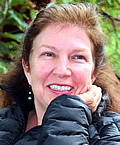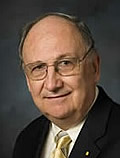
|
Michael MacCrackenMichael MacCracken is the Chief Scientist for Climate Change Programs with the Climate Institute in Washington D.C., where he also serves on the Board of Directors. Throughout his career Dr. MacCracken has served a wide variety of government agencies, and his current research is focused on limiting climate change. After receiving his B.S. in Engineering from Princeton University in 1964, Dr. MacCracken completed his Ph.D. at the University of California Davis/Livermore in 1968. Following his graduate work, he joined the Physics Department of the University of California’s Lawrence Livermore National Laboratory (LLNL) as an atmospheric physicist, from which he retired in 2002. |
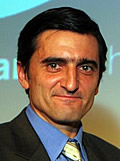
|
Omar MaseraOmar Masera recieved the 2007 Nobel Peace Prize as a part of an intergovernmental panel on climate change (IPCC). Dr. Masera is a visiting scholar at the Energy and Resources Group, and a full professor at the Centro de Investigaciones en Ecosistemas, Universidad Nacional Autónoma de México (UNAM), where he also serves as the Director of the Bioenergy Laboratory. Dr. Masera is a physicist with expertise in interdisciplinary research related to renewable energy, sustainability, technology and climate change. He obtained his Masters and PhD. at the Energy and Resources Group, UC Berkeley in the area of rural energy. In addition to leading the “Patsari Cookstove Project” in Mexico, Dr. Masera also has been a member of the International Panel on Climate Change (IPCC) since 1997, as well as the President of the Mexican Bioenergy Network (REMIO). |
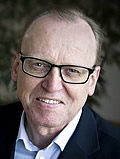
|
Flemming BesenbacherDr. Flemming Besenbacher is a full Professor in the Department of Physics and Astronomy at the Faculty of Science, Aarhus University, Denmark. His current research projects include the development and use of scanning probe microscopies, and a variety of other surface-sensitive techniques. He received his doctoral degree in Natural Sciences from Aarhus University. Dr. Besenbacher also currently serves as the chairman of the Board of Directors of Carlsberg A/S and of the Carlsberg Foundation, and has served as a Danish representative on several EU committees. |
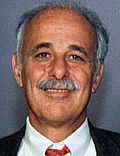
|
Roberto PecceiDr. Roberto Peccei is a professor in the Department of Physics and Astronomy and is the former Vice Chancellor for Research at the University of California Los Angeles, a position he held from 2000-2010. Dr. Peccei has served as dean of physical sciences in the UCLA College of Letters and Science, and chair of UCLA’s Department of Physics and Astronomy. He is the 2013 recipient of the J. J. Sakurai Prize for Theoretical Particle Physics in honor of the Peccei-Quinn Symmetry, an elegant theory that ties together several branches of physics and has important implications for our universe. He is a particle theorist whose principal interests lie in the area of electroweak interactions and in the interface between particle physics and physical cosmology. |
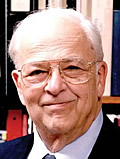
|
Burton RichterDr. Burton Richter received the 1976 Nobel Prize in Physics for his co-discovery of the J-particle. He served as the Director of the Stanford Linear Accelerator Center from 1984 to 1999, where he previously served as the Technical Director of the SLAC since 1982. Dr. Richter's research has focused on experimental particle physics with high-energy electrons and electron-positron colliding beams, and since 1999 he has devoted more time to issues regarding energy and sustainable development. He studied at the Massachusetts Institute of Technology, where he received his bachelor's degree in 1952, and his PhD in 1956. Dr. Richter currently serves as a board member of Litel Instruments and AREVA Enterprises, Inc. |
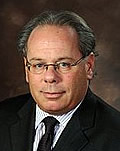
|
Steven CohenSteven Cohen is the Executive Director of Columbia University’s Earth Institute and a Professor in the Practice of Public Affairs at Columbia University’s School of International and Public Affairs. Dr. Cohen has taught courses in public management, policy analysis, environmental policy, management innovation, and sustainability management. He graduated from Franklin College of Indiana in 1974 and received his Masters from the State University of New York at Buffalo in 1977, where he also received his PhD in 1979. Dr. Cohen is also Director of the Master of Public Administration Program in Environmental Science and Policy at Columbia University’s School of International and Public Affairs, and the Director of the Masters of Science in Sustainability Management at Columbia University’s School of Continuing Education. |
Sandy AndelmanSandy Andelman is the Senior Director of the Tropical Ecology, Assessment and Monitoring (TEAM) Initiative at Conservation International, where she has worked since 2005. Dr. Andelman has more than 25 years of experience as a conservation scientist, working in North America, Africa, Asia and Australia. She received her PhD in behavioral ecology from the University of Washington. Dr. Andelman served seven years as Deputy Director for the National Center for Ecological Analysis and Synthesis (NCEAS) at the University of California, Santa Barbara, where she also was an Adjunct Professor in the Department of Ecology, Evolution and Marine Biology. |
|
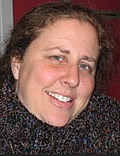
|
Leslie Black CordesLeslie Black Cordes is the Senior Director, Strategic Partnerships at the Energy and Climate for the United Nations Foundation, where she is responsible for developing new relationships with the philanthropic, international donors, and private sector communities. Ms. Cordes has a B.A. in Political Economics from the University of California at Berkeley, and a M.S. in International Trade & Finance from Georgetown's School of Foreign Service. She previously served for two years as Chief of EPA's Energy Supply and Industry Branch, where she managed a suite of voluntary programs that included the Climate Leaders, Green Power, and Combined Heat and Power Partnerships. She also serves on the board the Advisory Board of the Association for Climate Change Officers. |
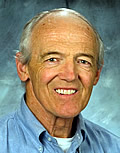
|
Arthur GossardDr. Arthur Gossard co-discovered the fractional quantum Hall effect in 1982. He is a professor of Materials Electrical Engineering at the University of California in Santa Barbara. His research is related to molecular beam epitaxy (MBE). He holds a B.A. from Harvard, a Ph.D. from UC Berkeley and was formerly a Distinguished Member of the Technical Staff of AT&T Bell Laboratories. In addition, Gossard grew the first alternate monolayer artificial superlattices in semiconductors and the first modulation doped quantum wells. |
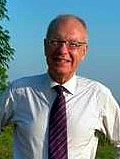
|
Peter HackettPeter Hackett is the Executive Professor in the School of Business, Special Advisor to the Vice-president Research and a Fellow of the National Institute for Nanotechnology at the University of Alberta. Prior to relocating to Alberta, he was the Vice-President, Research at the National Research Council of Canada, where he directed the corporate strategies for emerging technologies, entrepreneurship and technology clusters. His key portfolios included biotechnologies, information and telecommunications, manufacturing and molecular sciences, as well as leading the development of national measurement standards. During his work as a chemical physicist, he authored over 200 publications including 11 patents in photochemistry, the use of lasers in chemistry, and in nanotechnology. |

|
Peter SeligmannPeter Seligmann is the co-founder, Chairman of the Board and Chief Executive Officer of Conservation International, one of the world's leading conservation organizations. He is one of today's most dynamic leaders in the global conservation movement and is widely recognized as one of the world’s most inspiring and dynamic environmental entrepreneurs. Seligmann holds a masters degree from Yale University's School of Forestry and Environmental Science and an honorary Doctorate in Science from Michigan State University. He serves on the board of the Wild Salmon Center in Portland, Oregon, and the Mayor's Environmental Council in Washington, D.C. He also serves on several corporate boards, as well as on the advisory councils of the Jackson Hole Land Trust, Ecotrust and other not-for-profit organizations. |


